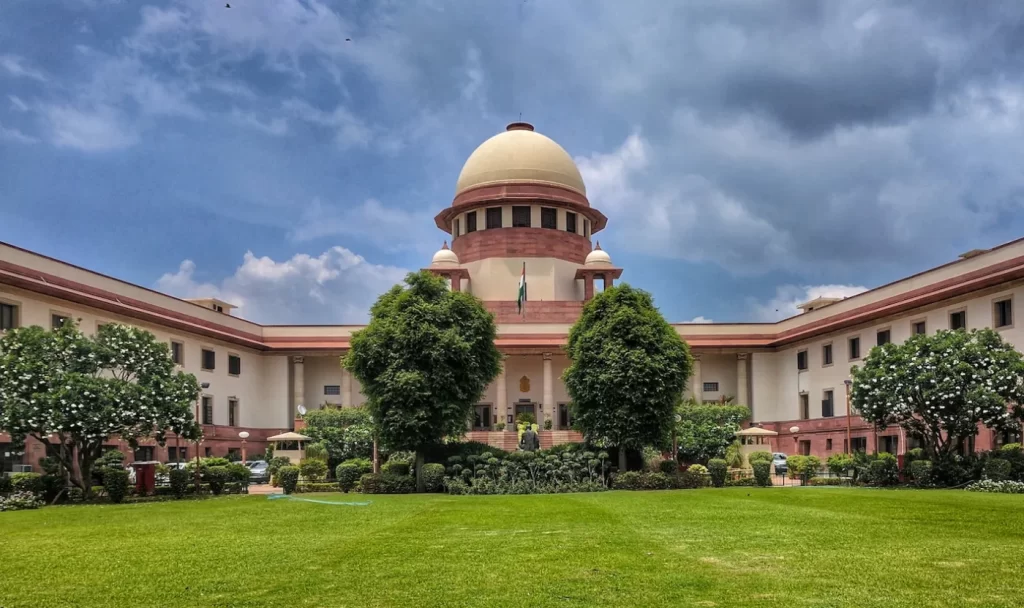Jahanvi Agarwal
In a significant judgment that has far-reaching implications for judicial service aspirants across the country, the Supreme Court, on May 20, 2025, has reinstated the requirement of a minimum of three years of legal practice as an advocate for those seeking appointment to entry-level positions in the judiciary. This condition, which had earlier been relaxed by the Court in 2002, has now been restored following years of debate and criticism over the lack of practical exposure among newly inducted judges. The three-judge bench comprising Chief Justice of India Bhushan Ramkrishna Gavai, Justice A.G. Masih, and Justice K. Vinod Chandran delivered this verdict in the matter of All India Judges Association v. Union of India, underscoring that the reform will apply prospectively, i.e., only to those recruitment processes initiated after the date of the judgment.
Importantly, the Court clarified that the three-year practice period can be calculated from the date of provisional enrollment with a Bar Council, thereby offering some leeway for candidates. To establish compliance with this requirement, a certificate issued by an advocate having at least ten years of standing and endorsed by a judicial officer of the relevant station would suffice. For those who have practiced before the High Courts or the Supreme Court, such certificates must be endorsed by a designated officer of the respective Court. Interestingly, the Court has also recognized the period spent working as a law clerk as qualifying experience, thereby expanding the definition of “practice” in a pragmatic manner.
The ruling comes in the wake of growing dissatisfaction over the appointment of fresh law graduates to judicial posts, with the Apex Court openly acknowledging that such a policy has proven to be problematic. “For the last 20 years, during which the recruitment of fresh law graduates have been appointed as judicial officers without a single day of practice at the bar has not been a successful experience. Such fresh law graduates have led to many problems,” the bench noted. The judges emphasized that new entrants to the bench are immediately tasked with adjudicating matters involving life, liberty, property, and reputation realities that demand a working familiarity with court proceedings, which mere book knowledge or brief pre-service training fails to provide.
The Court further elaborated that, “Neither knowledge based on law books nor pre-service training could be an adequate substitute to the first-hand experience of the working of the court system and administration of justice. This is possible when the candidate is exposed to the working of the court…and observing how lawyers and judges function in the court.” Hence, the Court aligned itself with the views expressed by most High Courts, supporting the idea that a minimum period of actual legal practice is essential to prepare aspirants for the rigors of judicial office. “The candidates should be equipped to understand the intricacies of a judge and therefore, we are in agreement with most of the High Courts that the requirement of the introduction of certain number of years of practice is necessary,” the judgment added.
The 2002 judgment in the same All India Judges Association case had earlier discarded the three-year practice requirement based on the recommendations of the Shetty Commission, which believed that such a mandate deterred bright young law graduates from considering a judicial career. The Court had then held that, “After taking all the circumstances into consideration, we accept this recommendation of the Shetty Commission…that it should be no longer mandatory for an applicant desirous of entering the Judicial Service to be an Advocate of at least three years’ standing.” However, the practical fallout of that decision, over two decades, has prompted a revisitation of the policy.
During the recent proceedings, Amicus Curiae, Senior Advocate Siddharth Bhatnagar, flagged concerns over the growing trend of aspirants fulfilling the eligibility requirement by simply signing vakalatnamas in name only, often without engaging in meaningful advocacy work. The bench expressed similar apprehensions, recognizing that such formalistic compliance defeats the very purpose of the rule. Despite these caveats, the overall consensus, reflected by the submissions of various High Courts and State authorities, overwhelmingly supported reinstating the practice requirement, with only Sikkim and Chhattisgarh High Courts taking a divergent view.
Additionally, the Court has also laid down directions concerning the promotion quota for Limited Departmental Competitive Exams (LDCE), although the details on this aspect were less elaborated upon in the public domain. Notably, the judgment did not interfere with ongoing recruitment processes that were initiated prior to May 20, thus preventing any retrospective disruption. For instance, the Supreme Court had earlier stayed the Gujarat High Court’s recruitment process which had proceeded without adhering to the three-year condition after the matter was reserved for judgment on January 28, 2025.
Case Name: All India Judges Association v. Union of India
Case Number: W.P. (C) No. 1022/1989
Bench: Chief Justice of India Bhushan Ramkrishna Gavai, Justice A.G. Masih, and Justice K. Vinod Chandran
Click here to access the order.
Instagram: Click here.
LinkedIn: Click here.
For Collaboration and Business: info.desikaanoon@gmail.com

